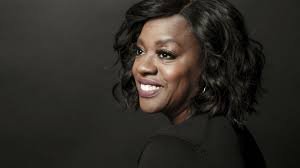Viola Davis Early Life and Humble Beginnings
Viola Davis was born on August 11, 1965, in St. Matthews, South Carolina, into a life of poverty and hardship. Raised in Central Falls, Rhode Island, she grew up in a run-down apartment infested with rats, often facing hunger and the humiliation of welfare checks. Despite these challenges, Davis found solace in performing, participating in school plays and local theater. Her talent was undeniable, but her path to success was far from easy. She attended Rhode Island College, where she studied theater, and later earned a scholarship to the prestigious Juilliard School, where she honed her craft. Davis’s early life was marked by resilience, a trait that would define her career and personal philosophy.
Breaking Barriers in Theater
Before conquering Hollywood, Viola Davis made waves in the theater world. In 1996, she won her first Tony Award for her role in King Hedley II, a performance that showcased her raw emotional depth and commanding presence. Her portrayal of Rose Maxson in the 2010 Broadway revival of Fences earned her a second Tony, solidifying her status as one of the greatest stage actresses of her generation. What many don’t know is that Davis often performed while grappling with imposter syndrome, a struggle she has openly discussed. Her ability to channel her personal battles into her roles made her performances unforgettable.

Viola Davis Hollywood Breakthrough and Historic Wins
Davis’s transition to film and television was not immediate, but once it happened, it was revolutionary. Her supporting role in Doubt (2008) earned her an Academy Award nomination, despite having only eight minutes of screen time—a testament to her unparalleled ability to command attention. However, it was her role as Aibileen Clark in The Help (2011) that catapulted her to mainstream fame, earning her a second Oscar nomination. In 2015, Davis made history by becoming the first Black woman to win the Primetime Emmy Award for Outstanding Lead Actress in a Drama Series for her role as Annalise Keating in How to Get Away with Murder. Her acceptance speech, in which she quoted Harriet Tubman, became a defining moment in television history.
The EGOT Dream and Beyond
In 2017, Viola Davis achieved another milestone by winning the Academy Award for Best Supporting Actress for her role in Fences, making her the first Black actress to win an Oscar, Emmy, and Tony (she later added a Grammy to her collection, completing her EGOT status). Her speech, where she spoke about the importance of storytelling for marginalized voices, resonated globally. Davis has since used her platform to advocate for diversity in Hollywood, often calling out the industry’s systemic biases. She founded JuVee Productions with her husband, Julius Tennon, to create opportunities for underrepresented voices in film and television.
Personal Struggles and Triumphs
Behind the accolades, Davis has faced profound personal struggles. She has spoken openly about her childhood trauma, including growing up in extreme poverty and dealing with racial discrimination. In her memoir, Finding Me, she reveals how she overcame self-doubt and societal rejection to embrace her worth. Davis’s journey is not just one of professional success but of profound personal transformation. Her authenticity and vulnerability have made her a role model for millions, particularly women of color who see themselves reflected in her story.
Philanthropy and Activism
Davis is as much an activist as she is an artist. She works tirelessly to combat hunger and poverty, drawing from her own experiences. She partnered with the Hunger Is campaign to eradicate childhood hunger in America and has been a vocal advocate for mental health awareness. Her philanthropic efforts extend globally, including support for education initiatives in underprivileged communities. Davis’s activism is rooted in her belief that art and social justice are inseparable, a philosophy that permeates her work both on and off the screen.

The Woman King and Redefining Strength
In 2022, Davis starred in and produced The Woman King, a historical epic about the all-female warrior unit of the Dahomey Kingdom. The film, which she championed for years, shattered stereotypes about Black women in cinema, showcasing them as leaders, warriors, and complex human beings. Davis trained intensely for the role, performing her own stunts at age 56. The film’s success proved that stories about Black women, told by Black women, have universal appeal.
Legacy and Cultural Impact
Viola Davis’s impact extends far beyond her awards. She has redefined what it means to be a Black woman in Hollywood, refusing to conform to limiting stereotypes and instead embracing roles that reflect the full spectrum of Black experiences. Her production company continues to develop projects that center marginalized voices, ensuring that the next generation of artists has opportunities she never did. Davis’s journey—from poverty to EGOT status—is a testament to the power of resilience, talent, and unyielding self-belief.
The Unstoppable Force of Viola Davis
Viola Davis is more than an actress; she is a cultural icon whose life and career embody the fight for representation and authenticity. Whether on stage, screen, or in her activism, she challenges the status quo with every step. Her story is one of triumph over adversity, a reminder that greatness is not about where you start but how far you’re willing to go. As she often says, “The only thing that separates women of color from anyone else is opportunity.” Viola Davis has not just taken opportunities—she has created them, paving the way for countless others to follow.
Go to main page


